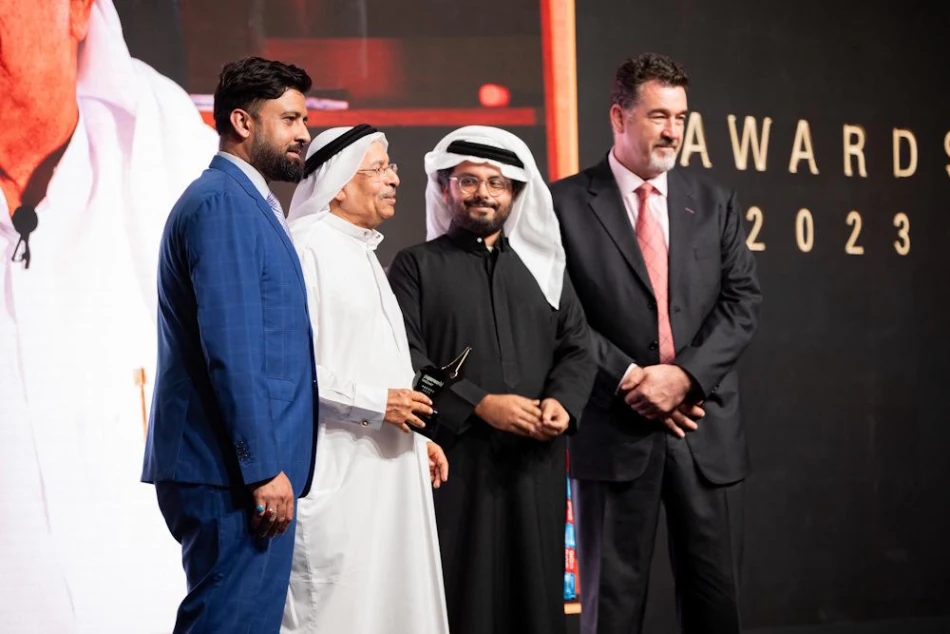
Amazon Empowers UAE's SMEs: Inspiring Local Success Stories for Aspiring Entrepreneurs
How Amazon's E-commerce Platform is Transforming UAE's Small Business Landscape
As back-to-school season approaches across the UAE, a 44-year-old Dubai-based stationery company exemplifies how traditional retailers are leveraging digital platforms to achieve unprecedented growth. Farook International Stationery's transformation from a single Deira showroom to a digital powerhouse with over 8,000 products on Amazon.ae illustrates the broader shift reshaping the Emirates' small and medium enterprise sector.
The Digital Commerce Revolution in the UAE
Small and medium enterprises form the backbone of the UAE's economy, representing a significant portion of all operating companies and contributing substantially to economic growth and digital transformation. This sector's evolution has accelerated dramatically as e-commerce platforms provide unprecedented access to customers and sophisticated logistics networks.
The timing couldn't be more critical. With the UAE positioning itself as a regional hub for digital commerce and the government's push toward economic diversification, local businesses are finding new pathways to scale beyond traditional brick-and-mortar limitations.
Amazon's Strategic Investment in Local Business Infrastructure
Amazon's UAE operations have introduced game-changing services that level the playing field for smaller retailers. Through Fulfillment by Amazon (FBA) and Seller Flex programs, local businesses can now offer same-day and next-day delivery services—capabilities previously reserved for large corporations with extensive logistics networks.
These services address a fundamental challenge facing UAE retailers: the country's dispersed population centers across emirates require sophisticated distribution networks. By leveraging Amazon's infrastructure, companies like Farook can serve customers from Dubai to Abu Dhabi with the same efficiency as global brands.
From Heritage Brand to Digital Leader
Farook International Stationery's journey began in 1980 when founder Farook Rahmatullah built upon his father's small greeting card business. The company methodically expanded to 12 showrooms across Dubai, Sharjah, Abu Dhabi, and Ajman, while establishing manufacturing facilities in Jebel Ali and Sharjah.
The pivotal moment came in 2019 when Farook joined Amazon.ae. This wasn't merely about creating an online presence—it represented a fundamental business model evolution. The company's digital catalog now features over 8,000 products, many earning Amazon's coveted "Bestseller" and "Amazon's Choice" badges.
Market Performance and Consumer Response
The results speak to changing consumer behavior in the UAE. Farook's online sales have exceeded projections, driven by the convenience of 24/7 shopping and reliable delivery services. This success reflects broader trends: UAE consumers increasingly expect seamless digital experiences, particularly for routine purchases like school supplies.
The company's performance during seasonal events—back-to-school sales, Prime Day, and White Friday—demonstrates how traditional retailers can capitalize on digital marketing opportunities that were previously inaccessible.
Implications for UAE's Economic Strategy
Farook's transformation aligns with the UAE's Vision 2071 and its emphasis on becoming a global hub for talent and innovation. By enabling local businesses to compete digitally, platforms like Amazon contribute to the country's economic diversification goals while preserving the entrepreneurial heritage that built the Emirates' commercial success.
Regional Context and Competitive Landscape
The UAE's approach mirrors successful digital transformation strategies in Singapore and parts of the United States, where government policy and private sector innovation have created ecosystems supporting small business growth. However, the Emirates' unique position as a regional trade hub provides additional advantages for local companies expanding into broader Middle Eastern and North African markets.
This contrasts with more restrictive e-commerce environments in some regional neighbors, positioning the UAE as an attractive destination for entrepreneurs seeking digital-first business models.
The Broader Digital Transformation Message
Farook's advice to fellow entrepreneurs reflects a pragmatic understanding of market realities: "The future is moving toward the digital economy, and this is not just an expectation but a tangible reality." This perspective acknowledges that digital transformation isn't optional for businesses seeking sustainable growth in the current economic environment.
The emphasis on continuous learning and adaptation resonates with successful digital transformation strategies worldwide. Companies that treat technology adoption as an ongoing process, rather than a one-time initiative, typically achieve better long-term results.
Looking Forward: Sustainable Growth Models
Farook International Stationery's success story illustrates how traditional businesses can maintain their heritage while embracing digital innovation. The company hasn't abandoned its physical presence but has used digital platforms to amplify its reach and improve customer service.
This hybrid approach—combining established local market knowledge with global digital capabilities—may represent the optimal strategy for UAE businesses navigating economic transformation. As the country continues investing in digital infrastructure and regulatory frameworks supporting e-commerce, similar success stories are likely to emerge across various sectors.
The back-to-school season serves as an annual reminder of how fundamental business needs—quality products, reliable service, competitive pricing—remain constant even as delivery mechanisms evolve. Companies that master this balance position themselves for sustained success in the UAE's increasingly digital marketplace.
Most Viewed News

 Sara Khaled
Sara Khaled






